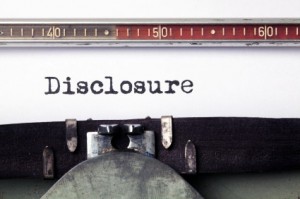Posts Tagged ‘disclosure’
Part 2: Disclosure Issues From the Perspective of the Embryo Donor
What Will The Relationship Be Like Between The Embryo Donors and the Offspring?
Depending on when disclosure might occur in an Open Embryo Donation or in an Anonymous with Open-Identity option, it is important to picture the offspring somehow entering the donor’s life five to 10 years following the donation or even decades later. Will the contact always be welcome? After meeting for the first time, what will come next: affection, friendship, politeness, family or even love?
Reunions can be threatening to both the embryo donor offspring and the recipients. The parents who raised the child may feel threatened by the relationship between donors and offspring. While reunions of biologic parents and adoptees can be very rewarding, it is uncertain how the situation will fair in the world of embryo donation in either the short or long-term (Grotevant HD, et al, 2008).
The reality is that we don’t have a great deal of information regarding the complex interactions between the donor-offspring and their genetic parents or the donor offspring and their biologic brothers and sisters. We don’t know how the interactions will affect the existing donor offspring –parent/recipient relationship. We need to be careful not to push patients in one direction, only to find out that harm may have been done. When there is no clear data, I feel we must be cautious in what we recommend.
Should Embryo Donors Tell Friends and Family of Their Decision to Donate Their Embryos?
In the recent poll, the majority of respondents were willing to tell friends and family of their decision to donate. In some societies and religions, this decision will be met with concern and even condemnation. The decision to disclose the donation decision needs to be made with care as family and interpersonal relationships may be harmed.
Would Consultation With a Mental Health Professional be Helpful?
The recommendations regarding psychological counseling are confusing. In 2004, the American Society for Reproductive Medicine (ASRM) stated (Ethics Committee for ASRM, 2004):
All prospective recipients and donors should receive counseling with a qualified mental health professional about the psychological implications of donation and disclosure for the recipients, donors, and children.
However, in an article published two years later, ASRM recommended (Practice Committee for ASRM SART, 2006):
Psychological consultation with a qualified mental health professional should be offered to all couples participating in the donor-embryo process.
Psychological assessment by a qualified mental health professional is recommended to ascertain suitability of potential donors.
Recipients of donor embryos and their partners should receive counseling about the potential psychosocial implications.
It would appear that ASRM both mandates and suggests that counseling be performed, so take your pick. We always encourage all embryo donors to seek assistance from a qualified mental health professional. We are careful, however, to not make this mandatory. We have concerns that if we make donating embryos too difficult and time consuming for the donors, they will be more likely to discard or abandon their embryos.
Summary Comments:
When embryo donors decide to donate their embryos, they must also guide the process concerning eventual disclosure. Open procedures are more likely to include disclosure and eventual contact between the donors and the offspring. Open-Identity procedures may also result in eventual contact, perhaps decades after the donation process was performed and can have uncertain short and long-term consequences. If disclosure occurs, the offspring will probably be fine. According to research, if they are not told, they will doubtfully suffer consequences as long as disclosure didn’t occur by accident. These issues will be covered in detail in an upcoming blog.
Disclosure decisions are controlled by the donor and accepted by the recipient. While more donor egg and sperm offspring feel it is their right to know their genetic origins, the reality is that embryo donation has particular circumstances that make secrecy possible. To say secrecy is always wrong is no different than stating emphatically that it is always right.
Donors and recipients must agree on disclosure decisions together for the good of everyone involved, including the unborn child.
To make this discussion as interesting and current as possible, I’d ask that you participate in our next survey. Please take the survey imagining you are an embryo recipient. I will summarize the survey results in the next blog while reviewing the information we know about the disclosure issues from the perspective of the embryo recipient.
Please ask your family, friends and anyone else interested to join in the survey and add comments to the blog as we wade together through the complex issue of disclosure of the embryo donation process to others, especially to the child.
Next:
Please be sure to watch for our next blog: “Embryo Donation Disclosure Issues From the Perspective of the Embryo Recipient.”
References:
Ethics Committee of the American Society for Reproductive Medicine. Informing offspring of their conception by gamete donation. Fertil Steril. 2004 Sep;82 Suppl 1-S212-6.
Grotevant HD, Wrobel GM, Von Korff L, Skinner B, Newell J, Friese S, McRoy RG. Many Faces of Openness in Adoption: Perspectives of Adopted Adolescents and Their Parents. Adopt Q. 2008 Jul 1;10(3 & 4):79-101.
Widdows H, MacCallum F. Disparities in parenting criteria: an exploration of the issues, focusing on adoption and embryo donation. J Med Ethics 2002;28:139-42.
MacCallum F, Golombok S, Brinsden P. Parenting and child development in families with a child conceived through embryo donation. J Fam Psychol. 2007 Jun;21(2):278-87.
MacCallum F, Keeley S. Embryo donation families: a follow-up in middle childhood. J Fam Psychol. 2008 Dec;22(6):799-808.
Practice Committee for ASRM SART. 2006 Guidelines for gamete and embryo donation. Fertil Steril 2006;86(Suppl 4)S38-50.pdf
Disclosure Issues From the Perspective of the Embryo Donor
This is the second of a five-part series by Dr. Craig R. Sweet examining the complex decision-making surrounding the disclosure of the genetic origins of embryo donor offspring to family, friends and the children themselves.
If embryo donors are kind and generous enough to donate their unused frozen embryos to patients in need, their next important decision revolves around whether they want to donate anonymously or if they would like to create some type of relationship with the recipients and their potential offspring. At EDI we want to give donors the widest range of choices, so we offer Anonymous, Approved and Open Embryo Donation procedures.
We do not have accurate national statistics about which embryo donation procedure is chosen most often. Some matching  organizations only deal with open procedures while many reproductive facilities only offer anonymous arrangements. Embryo donors, therefore, often have to search for the facility that will cater to their needs.
organizations only deal with open procedures while many reproductive facilities only offer anonymous arrangements. Embryo donors, therefore, often have to search for the facility that will cater to their needs.
Is Adoption the Best Model To Follow?
I have written about why I believe the term “embryo adoption” should not be used in the context of embryo donation and the American for Reproductive Medicine has a similar perspective. Regardless of our beliefs, some donors feel a responsibility to the embryos that includes making certain the embryos are donated to a loving and safe home. These donors feel the process is similar to adoption.
Over the years, there has been a trend in traditional adoption towards providing adopted offspring with information about their genetic parents after they turn 18 years of age. This trend towards disclosure is being used to encourage more open procedures in embryo donation. But there is a major difference between the two forms of family building: embryo donation offspring do not have to be told of their origins. Because the recipient carries and delivers the child, it is completely possible to keep the “non-genetic” relationship a secret from family, friends and the child. The donor offspring-recipient relationship begins differently than adoption from legal, emotional, social and practical perspectives.
Embryo donors and the genetic parents of a newborn are able to stipulate what kind of recipient will be given their embryos and newborn. While they will state they are doing what is best for the child, some may argue they are doing what is best for themselves. In the case of child neglect/abuse/abandonment, the courts and case workers will decide what they feel is best for the living child. In this situation, the needs of the child take priority over the perceived needs of the genetic parents. Embryo donation always focuses on the needs of the parents while adoption may focus on the needs of the child.
Are Embryo Recipient Families and Offspring Happy?
Embryo donors may worry about the kind of home in which the potential children of their donated embryos will be raised. Results from recent research can help mitigate these concerns since it appears that embryo donation families are more child-centered than adoptive and other IVF families (MacCallum F, et al. 2007 & 2008). This may be due in part to the recipients’ older age and maturity compared to their younger IVF and adoptive parents. Given their strenuous attempts to conceive, the embryo recipients seem to be extraordinarily appreciative of their gift, making their homes more child-centered and the children seem to be well attended.
 Unlike adoption, it is doubtful that the offspring of embryo donation will have the “history of rejection” to resolve like adopted children might have after being separated from their birth parents (Widdows H, et al. 2002). Although studies are lacking, this hurtle doesn’t seem to exist for children created from embryo donation. Indeed, though the donors felt their own family building was complete, they also felt strongly about giving their unused embryos a chance at life as well as wanting to “pay it forward” to deserving recipients. Families created through embryo donation are a product of a loving gift and not formed from rejection.
Unlike adoption, it is doubtful that the offspring of embryo donation will have the “history of rejection” to resolve like adopted children might have after being separated from their birth parents (Widdows H, et al. 2002). Although studies are lacking, this hurtle doesn’t seem to exist for children created from embryo donation. Indeed, though the donors felt their own family building was complete, they also felt strongly about giving their unused embryos a chance at life as well as wanting to “pay it forward” to deserving recipients. Families created through embryo donation are a product of a loving gift and not formed from rejection.
It would, therefore, appear that the offspring created through embryo donation do not have to have a relationship with the embryo donors to be well adjusted. While it may be desired and perhaps even preferred by offspring, it remains the embryo donor’s choice at this early stage of the game.
What Options Are Readily Available?
I believe that in most Open Embryo Donations, the child will be told of their origins. In fact, contracts may stipulate that the donors have the right to contact the child at a later date or may provide a mechanism for the child to be able to contact the donor at a certain age. An Open Embryo Donation process more closely mirrors an adoption process.
For Anonymous Embryo Donation, EDI is considering Open-Identity, an intermediate option allowing embryo donor offspring access to medical and other types of information after they reach a specified age. A number of steps are needed for open-identity to work:
- Embryo donors must agree to an anonymous process with the option of open-identity at a later date.
- The embryo recipients are not mandated to disclose, so only those offspring who are told may seek contact with the donors.
- If the embryo donor offspring desire contact, they will notify the clinic that performed the embryo donation procedure to access identifying information.
- It is essential that the embryo donors maintain contact with the embryo donation facility so that up-to-date identifying information is available.
I find it curious that most open-identity procedures, such as in adoption, identifying information is only provided at or beyond the age of 18. I can’t help but wonder if the child would be better served by having contact earlier, especially if it is truly desired by all parties. If the donors and recipients agree, why not initiate contact earlier, such as in the formative years? The respondents to our first poll seem to agree with the vast majority favoring an open-identity disclosure before the age of 18.
We will continue this discussion, on disclosure issues from the perspective of the embryo donor tomorrow and also launch the second of our three surveys. The reference list will also be posted with this second half tomorrow. Stay tuned!
Disclosure Issues In Embryo Donation: A Five Part Series
Introduction
Embryo donors and recipients are faced with a number of complex decisions. Embryo donors first have to make the difficult decision about the fate of their cryopreserved embryos. If they are kind and generous enough to choose embryo donation, at EDI they must next decide what type of donation process they prefer:
- Anonymous Embryo Donation: Best for the donors who desire closure following donation.
- Approved Embryo Donation: Good for donors who want to learn about the recipients through a mental health professional’s report that excludes any identifying information.
- Open Embryo Donation: This option is best for the embryo donor who wants to form a relationship with the recipients. This process includes legal contracts, mental health professional interviews, physical exams and laboratory evaluations.
Embryo recipients must also choose the type of donation process they prefer. They must pay additional fees as the complexity of  the donation process increases. Though the recipients may not realize this at the time, choosing between anonymous and open procedures begins to form the decisions about disclosing the children’s origins to the offspring themselves. The decision whether or not to tell the embryo donor offspring of their genetic origins is a complicated and important issue.
the donation process increases. Though the recipients may not realize this at the time, choosing between anonymous and open procedures begins to form the decisions about disclosing the children’s origins to the offspring themselves. The decision whether or not to tell the embryo donor offspring of their genetic origins is a complicated and important issue.
The goal of this five-part series is to explore the complex issues surrounding the decision to disclose the genetic origins of embryo donor offspring to family, friends and the children themselves. This multifaceted decision requires our trying to understand the perspectives of the various participants in the embryo donation process, namely the embryo donors, the embryo recipients and the offspring themselves.
For example, if you were an embryo donor, would you want to have a relationship with a child who was being raised by another family? If so, at what age would you want them to contact you? If you were an embryo recipient, would you tell friends, existing children, extended family and the children themselves that their genetic origins were from embryo donors? If so, at what age would you tell the children? Would you want them to have a relationship with the embryo donors? And finally, if you were the product of embryo donation, would you want to know who your genetic parents are? When would you want to be told? Would you seek a relationship with the donors and their children, your genetic brothers and sisters?
This is a sensitive topic and, quite plainly, it needs to be discussed carefully, sensitively and openly.
How We Will Start
To make this discussion as interesting and as current as possible, I am asking the reader to complete three brief surveys. The first survey will ask questions pertinent to the perspectives of embryo donors, the second will focus on embryo recipients and the final one will probe how children borne through this unique reproductive option might feel. Each survey will be available for completion for about 10 days.
You will find the survey on this link on Survey Monkey. It only takes a few minutes to complete. We consider your input invaluable to help us understand this complex topic.
Blog: Introduction To Disclosure Issues (This one)
Survey: “Imagine You Are An Embryo Donor”
Blog: Results of “Imagine You Are An Embryo Donor” survey and discussion about “Disclosure Issues From the Perspective of the Embryo Donor”
Survey: “Imagine You Are an Embryo Recipient”
Blog: Results of “Imagine You Are an Embryo Recipient” survey and discussion about “Disclosure Issues From the Perspective of the Embryo recipient”
Survey: “Imagine You Are an Embryo Donor Offspring”
Blog: Results from the “Imagine You Are an Embryo Donor Offspring” survey and discussion about “Disclosure Issues From the Perspective of the Embryo Donor Offspring”
Blog: “Summary Comments On The Embryo Donation Disclosure Issues”
Please ask your family, friends and other interested parties to complete the survey and add their comments to the blogs. If you wish to be notified of future blogs, either please subscribe to our blog RSS or like the EDI Facebook page.
Thank you!
Please visit and complete our survey here:
Next Month:
Please be sure to watch for our next blog that will be titled, “Embryo Donation Disclosure Issues From the Perspective of the Embryo Donor”.